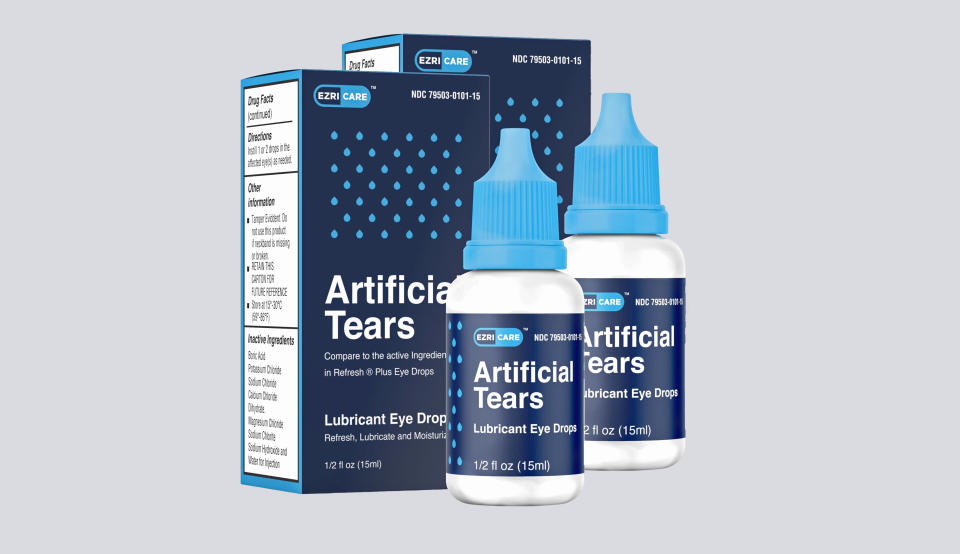CDC warns that a brand of eyedrops may be linked to drug-resistant bacterial infections
One person has died and at least three other people have permanent vision loss because of a bacterial infection possibly linked to a brand of over-the-counter eyedrops, said the Centers for Disease Control and Prevention, which urged consumers Wednesday to stop using EzriCare Artificial Tears while it investigates the outbreak.
On Thursday, the maker of the eyedrops recalled them because of possible contamination.
A majority of those affected reported using preservative-free EzriCare Artificial Tears before they became ill, said Maroya Spalding Walters, head of the CDC's antimicrobial resistance team.
So far, the CDC has identified at least 55 people in 12 states with Pseudomonas aeruginosa, a type of bacterium resistant to most antibiotics. Cases have been reported in California, Colorado, Connecticut, Florida, New Jersey, New Mexico, New York, Nevada, Texas, Utah, Washington and Wisconsin.
Three-quarters of the patients said they'd used artificial tears before they developed infections. Of those who were able to recall brand names, 85% said they'd used preservative-free EzriCare Artificial Tears, Walters said. The CDC first alerted the public to the potential danger in a statement dated Jan. 20.
While the infections have not been definitively traced to the eyedrops, the CDC is working with the Food and Drug Administration and state and local health officials to investigate.
"To my knowledge, this is the first time that these highly resistant organisms have been linked to a contaminated product," Walters said.

Eleven developed eye infections, at least three of whom were blinded in one eye. Others had respiratory infections or urinary tract infections. One person died when the bacterium entered the bloodstream.
It is unclear whether the affected patients had underlying eye conditions that would have made them more susceptible, such as glaucoma or cataracts.
Pseudomonas aeruginosa bacteria are commonly found in water and soil and even on the hands of otherwise healthy people. Infections usually occur in hospital settings among people with weakened immune systems.

 Yahoo Autos
Yahoo Autos 